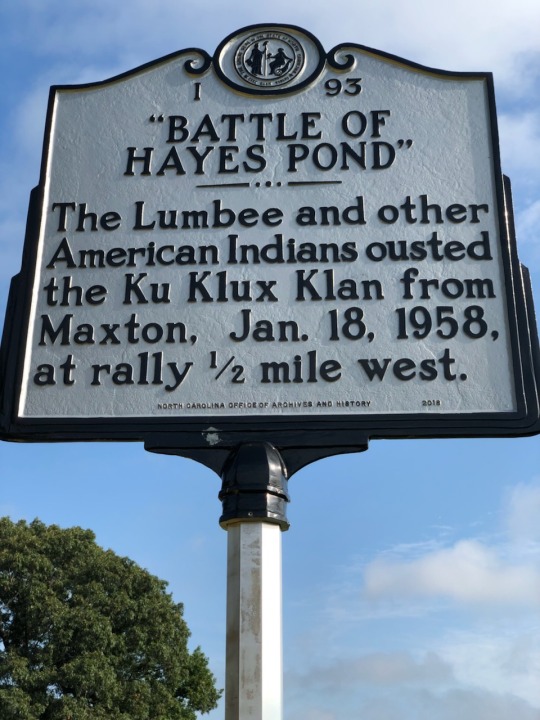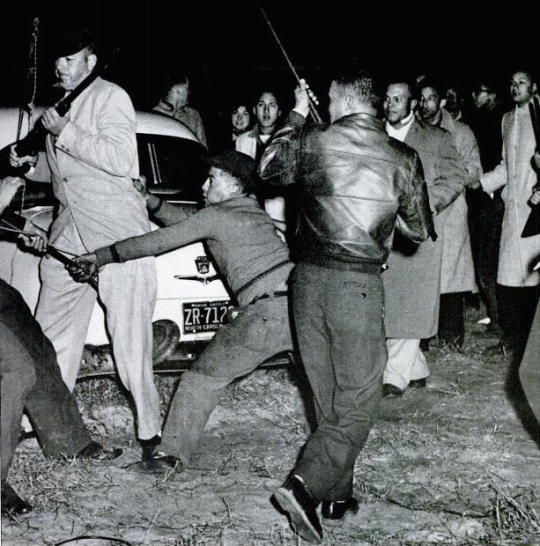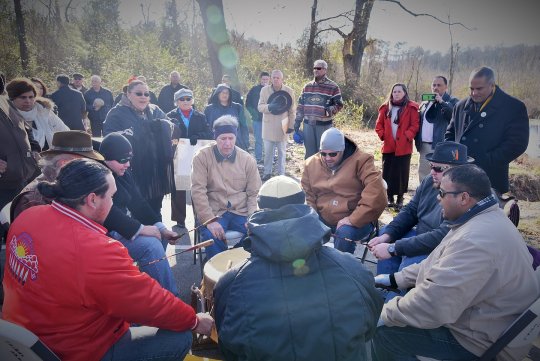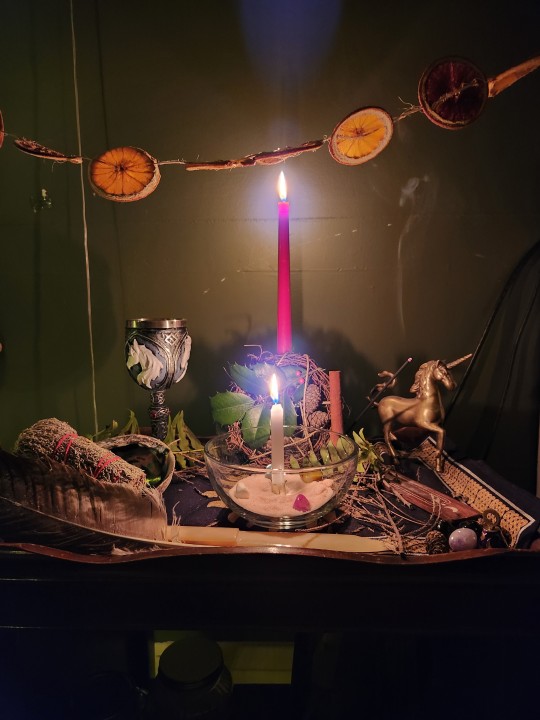#lumbee
Explore tagged Tumblr posts
Text
There's a lot to be said about how many Native tribes, often lacking in the economic opportunities available in many non-tribal areas, have turned their economic development models towards providing services that are forbidden to provide outside of tribal land. The 1987 California v. Cabazon Band of Mission Indians ruling acknowledged the right of tribes to operate gambling facilities regardless of state regulations, and the Obama-era loosening of weed regulations made it easier for them to sell marijuana with less concern for non-tribal laws.
Although these policy developments were not something that most tribes actively sought out, they eventually realized that these policies gave tribal lands a monopoly on certain goods and services that people were unable to acquire elsewhere. Perhaps for the first time ever, government decisions had given tribal economies an advantage over the non-tribal economies surrounding them. This led many tribes to lean hard into their newfound policy-based comparative advantage, building up their local economies around non-Native tourism in a way that sits awkwardly with many Native activists' desire for economic sovereignty.
Tribes with well-managed tribal governments have been able to use this arrangement to great advantage. The Eastern Band of Cherokee Indians (who this post is really about, simply because I know a lot about them) not only uses the money generated by their casino resort to fund social services, they also distribute some of the casino's earnings as cash dividends to Cherokee residents, effectively funding a basic income for the tribe with the money lost by gamblers (who are, disproportionately, white outsiders). After centuries of being robbed by surrounding white communities, there's something of a perversely poetic justice to this (even if those losing the most money at the casino are not necessarily the same segments of the white population who gained the most from Cherokee dispossession).
But it's not all good news. This arrangement also has some concerning side effects on the political economy of Native tribes. The EBCI Cherokee tribe have long opposed federal recognition of the Lumbee, another group in North Carolina who are the largest Native tribe in the US that is unrecognized by the federal government. One of the reasons that the Cherokee have turned their backs on the Lumbee's quest for recognition is because it would threaten their monopoly on gambling in North Carolina. If the Lumbee were treated as a proper tribe, they could open up their own casino, threatening the monopoly profits of the Cherokee casino. Thus, another use of the Cherokee's casino funds has been to actively lobby against another Native tribe.
The EBCI Cherokee's economic reliance on their casino has damaged any prospect of inter-tribal Native solidarity in North Carolina. From the Cherokee's perspective, they have been placed in a situation where the desires of other tribes come at the direct expense of their own tribes' desires. The tension between these two is not a natural phenomenon, but rather the product of a policy framework which leaves little choice for tribal economic development outside of cutthroat monopoly preservation. If solidarity is to live, the casino-first model must die. The question is: what replaces it?
#North Carolina#Native American#we're doing old school Afloweroutofstone effort posting today I guess#Cherokee#Lumbee
985 notes
·
View notes
Text
No cheating, please! Answer the trivia question to the best of your ability, then check below the cut! Please do not give away answers in comments or tags!
Answer below:
The Lumbee people live primarily in Southeastern North Carolina.
https://en.wikipedia.org/wiki/Lumbee
11 notes
·
View notes
Text






THE NATIVE AMERICANS "LUMBEE" RAN THE KKK OUT OF THEIR COMMUNITY ✊🏼✨✊🏼
Cole and his Klansmen widely advertised their event, driving throughout the county in a truck outfitted with a loudspeaker to broadcast their plans. The announcements infuriated the Lumbee community and some decided to try to disrupt the meeting. Fearing violence, local law enforcement officials pleaded with Cole to suspend his plans, but he refused. On January 18, 1958, Cole and about 50 Klansmen, most of whom were followers of his from South Carolina, gathered in a leased cornfield near Hayes Pond, a place adjacent to the town of Maxton. Several hundred Lumbees, many armed, arrived and encircled the group and jeered at them. After an altercation in which the single light in the field was destroyed, the Lumbees began firing their weapons and most of the Klansmen fled. Cole hid in a swamp while the Lumbees seized Klan regalia and carried them to Pembroke to celebrate. Police restored order on the field and arrested one Klansman.
Afterwards, Cole and the arrested Klansman were indicted and convicted for inciting a riot. The event was widely covered in the local and national press, which blamed the Klan for the disorder and praised the Lumbees for their actions. Cole never organized another public rally in Robeson County after the incident. In 2011 the Lumbee Tribal Council declared January 18 a "Tribal Day of Historical Recognition".
25 notes
·
View notes
Text
Federal Recognition of the Lumbee Tribe of North Carolina
Issued January 23, 2025.
Section 1. Purpose and Policy. The Lumbee Tribe of North Carolina, known as the People of the Dark Water, have a long and storied history. The tribe's members were descendants of several tribal nations from the Algonquian, Iroquoian, and Siouan language families, including the Hatteras, the Tuscarora, and the Cheraw. The waters of the Lumbee River and lands that surround it have protected and provided for the Lumbee people for centuries despite war, disease, and many other perils.
In 1885, the State of North Carolina recognized the Lumbee people as an Indian tribe. 1185 N.C. Sess. Laws 92. In 1956, President Dwight D. Eisenhower signed the Lumbee Act (Public Law 84-570, 70 Stat. 254), which recognized the Lumbee as the Lumbee Indians of North Carolina but denied Lumbee Indians Federal benefits associated with such recognition. Today, according to the State of North Carolina, the Lumbee Tribe consists of more than 55,000 members, making it the largest tribe east of the Mississippi River and the ninth-largest tribe in the Nation.
In 2024, the United States House of Representatives passed, by a vote of 311-96, the Lumbee Fairness Act (H.R. 1101), which would grant the Lumbee Tribe full Federal recognition, but this legislation was not considered by the United States Senate before the end of the 118th Congress. Similar legislation has passed the House of Representatives several times.
Considering the Lumbee Tribe's historical and modern significance, it is the policy of the United States to support the full Federal recognition, including the authority to receive full Federal benefits, of the Lumbee Tribe of North Carolina.
Sec. 2. Directive for Recognition Plan. (a) Within 90 days of the date of this memorandum, the Secretary of the Interior shall review all applicable authorities regarding the recognition or acknowledgement of Indian tribes and, in consultation with the leadership of the Lumbee Tribe of North Carolina, shall submit to the President a plan to assist the Lumbee Tribe in obtaining full Federal recognition through legislation or other available mechanisms, including the right to receive full Federal benefits.
(b) The plan shall include consideration and analysis of each potential legal pathway to effectuate full Federal recognition of the Lumbee Tribe, including through an act of the Congress, judicial action, or the Procedures for Federal Acknowledgement of Indian Tribes set forth in 25 C.F.R. Part 83.
(c) The Secretary of the Interior is authorized and directed to publish this memorandum in the Federal Register.
4 notes
·
View notes
Text
A bit late, but I hope you had a safe and joyous Yule. May your days only get brighter from here 🌟❄️

21 notes
·
View notes
Text
I was watching powwow videos with tribal soldiers and veterans dancing, went down a history rabbit hole, and discovered that the official US Dept of Defense website not only acknowledges the various "Ethnic Heritage Months" but actually has good articles about them? Like, it's not just a few articles with empty platitudes and "we acknowledge and honor the [people of ethnic group] who have served, such-and-such number have served in these wars, blah blah blah, here's a famous person from that ethnic group". There are actually articles with thoughtful content???
I mean obviously there's going to be some underlying bias considering the site they're published on (for instance, nothing on current issues with discrimination and such) which is important to keep in mind. But it's still good content. For those of you willing to take the risk of going to a US government website, here's an article to start with: Navy Boots, Lumbee Roots
"...His grandfather and a cousin, both members of the Lumbee Tribe, served in the Army, and their service inspired him...
Rogers acquired the Lumbee dialect during his trips to Robeson, which made for trouble when he returned to school. "My English teachers would get mad at me because I'm talking all types of medicine, and they'd be like, 'That's not how you say things...'"
As fate would have it, Rogers's service in the Navy would lead him to serving under a commanding officer who was also a member of the Lumbee Tribe.
"His name was Cmdr. Morris Oxendine," he said. "He looks like a Lum and talks like a Lum. Everybody thought that man sounded different, but I thought he sounded like home!""
#military#culture#anthropology#history#native american#lumbee#cultural heritage#soldiers#the usa#sociology#socio-cultural
5 notes
·
View notes
Text
I am Southern Tuscarora, I am increasingly frustrated with Lumbee presence.
I know discussions about Lumbee are probably done to death but I really wanted to insert my perspective as a descendant of one of the tribes the Lumbee claim to be an admixture of:
The Lumbee actively erased us and our culture over the years. The reason they cannot be federally recognized is the same reason they are state recognized—in claiming to be the descendants of my, and many other NC tribes, they signed an agreement with the NC government stating they would be the only valid Indians of Robeson County and would in exchange for preventing us from being recognized, they could not receive federal recognition and benefits.
It's painful to attend indigenous events in my state knowing I'm going to be surrounded by the very people helping kill my culture. They are NOT related to us—they cannot trace lineages back to us, they are not related to us according to DNA tests they've taken.
My tribe's langauge was just officially declared extinct recently and it just furthers my anger towards the Lumbee.
Their recognition as a tribe at all feels more and more like some kind of psyop every day.
And when you call them out on being culture vultures, on erasing cultures, on stealing land and resources—they will whine and cry that that only reason we don't claim them is because 90% of them are mixed Black.
Like, I don't believe in blood quantum but I also don't like a group of people with >2% OVERALL native DNA claiming to be my tribe when we're not related. My culture is DYING and they're complaining because the harm they did to us is no longer beneficial anymore.
The Lumbee have no place in indigenous spaces or having a voice on indigenous matters.
#ndn tag#ndn tumblr#ndn#native american history#native american#nativeamericans#native women#native#indigineous people#indigneous#Tuscarora#Skarure#Lumbee#dollie rambles#native issues#indigenous issues#tribal politics#blood quantum
11 notes
·
View notes
Text
@shadeslayer
an appalachian environmental magazine i follow is calling for writing submissions from specifically indigenous people in southern appalachia and the broader southeast. the theme is indigineity, but the magazine covers ecology and climate change. there is no fee for submission. i am not indigenous, but i frequently see indigenous people sharing interesting perspectives regarding environmental science here on tumblr, so I thought i would share the link here.
#wondering if you heard about this#indigenous art#indigenous artist#indigenous#chickasaw#choctaw#caddo#seminole#muscogee#creek#lumbee
11K notes
·
View notes
Text

for all of the missing and murdered indigenous people and their families.
it makes me so angry and sad to see so much violence against indigenous peoples. i often wonder why this keeps happening to this land’s people. i hope for change and for peace.
#MMIW#mmiwawareness#emily pike#cole brings plenty#missing and murdered indigenous women#white buffalo calf woman#Saponi#Lumbee
0 notes
Text

This is a poll blog that asks the question…could your favorite fictional character be a pro wrestler? Would you like to submit a character? Click this link if you do!
#rate this wrestler#tatanka#Chris Chavis#native american#tumblr polls#polls#wrestling#wwe#wrestler#professional wrestling#pro wrestling#wwe legends#lumbee#wwf#90s wwf#world wrestling entertainment#world wrestling federation#wwe raw#wwe smackdown#wwf superstars#wwe superstars#million dollar corporation#South Atlantic Pro Wrestling#stampede wrestling#wwf wrestling#90s wrestling#classic wrestling#the legend#war eagle#wrasslin
1 note
·
View note
Text

0 notes
Text

I am one White-Tuscarora Lumbee who does not support Trump fully, although he wishes to recognize the Lumbee federally, he and Homan make me ashamed to be an american, to think, that he will go into my church to take out my cousins, aunts, and uncles, albeit, they may be from Latinoamerica, for deportation back to undesirable territories ... These people are my people, DNA of my DNA, dust of this dust, dust of this Earth, before America's creation. If Trump wishes recogiize the Tuscarora Lumbee peoples federally, first he should recognize that the Guatamaltecos, Hondurenos, Salvadoians, Equatorianos, Peruanos, and yes, those of Panama too, are brothers and sisters of the Wyandots, Kickapoos, Taos, Pima, and Tuscaroras against whom it all started in 1492.
3 notes
·
View notes
Text
I'm so glad there's attempts to just let the Lumbee bypass all the regulations and shit that it takes to be federally recognized in order to muddy the waters and render Federal recognition useless in the long run, I'm sure this is going to benefit natives
#like. y'all can have your opinions but they don't have a language#they have what they call a lumbee dialect which is a dialect of English#supposedly they have some Tuscarora people but I've never seen them promote the language?#I've never seen anything culturally significant that applies just to them like designs or stories or dances#and I'm sorry but they mostly just use medicine wheel colors#also. they've claimed Cherokee before so even just based on that I find this dubious
20 notes
·
View notes
Text
Unpopular opinion amongst my tribe but the Lumbees should get federal funding.
#idgaf if they open a casino#like yeah they aren’t a precolumbian tribe but neither are the Métis#they face a lot of the same discrimination and cultural genocide. lumbee kids were sent Indian boarding schools too ya know.#we’ve got bigger fish to fry when it comes to protecting tribal sovereignty#intertribal beefs needs to end and it makes me embrassed to be ebci sometimes
0 notes
Text
Native Americans and the Civil War
Professor Jaime Martinez, in this lecture from the Civil War Institute at Gettysburg College’s 2024 Summer Symposium, discusses the Lumbee Indians of North Carolina during the Civil War. The video’s description reads, “Historian Jaime Martinez discussed the Lumbee Indian tribe of North Carolina which endured forced labor conscription and other injustices during the Civil War. This was part of…

View On WordPress
0 notes